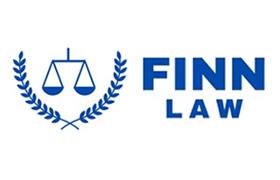 Altamont Juvenile Law Lawyers, New York
Altamont Juvenile Law Lawyers, New York
Sponsored Law Firm
-
 x
x

Click For More Info:
-
Finn Law Offices
12 Sheridan Ave. Albany, NY 12207» view mapAccident & Injury and Criminal Defense Action-Oriented Legal Advocacy
At Finn Law Offices, our attorney relies upon his experience and dedication to protect your rights in a personal injury, employment law, criminal defense or civil rights case.
800-872-6030
Not enough matches for Altamont Juvenile Law lawyer.
Below are all Altamont Criminal lawyers.
Sponsored Lawyers
1-1 of 1 matches
Immigration, Real Estate, Criminal, Divorce & Family Law, Traffic
Stephen Rockmacher has over 25 years experience concentrating but not limited to Immigration, Real Estate, Criminal and Family law cases. He is focused on providing high quality service and providing individual attention to all your legal needs for the highest client satisfaction.
(more)


 Ryan M. Finn Albany, NY
Ryan M. Finn Albany, NY AboutFinn Law Offices
AboutFinn Law Offices

